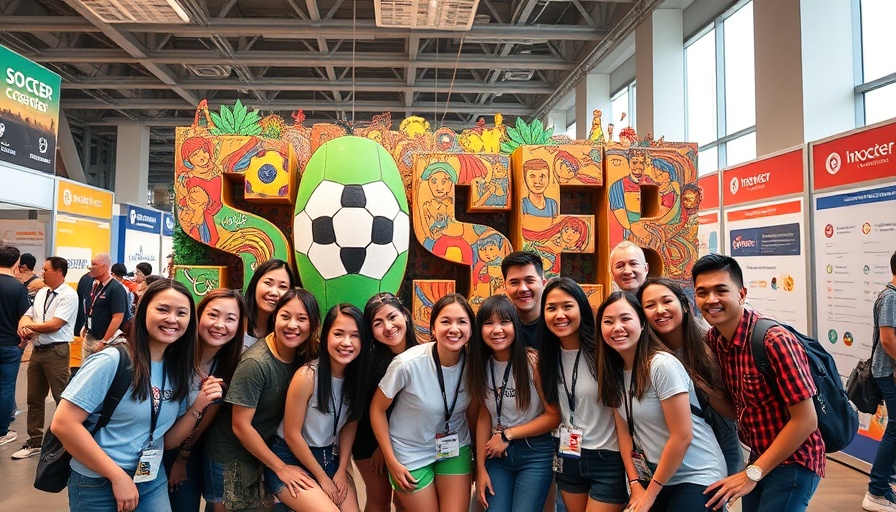
Philadelphia Blooms in Unity and Celebration
Philadelphia is buzzing with excitement as the city reveals its official poster for the highly anticipated 2026 FIFA World Cup. This unveiling, an emblem of creativity and community spirit, took place in a spectacular floral display at the annual PHS Philadelphia Flower Show on March 5, 2025. The artwork is the brainchild of Pittsburgh artist Nicholas McClintock, whose design embodies the essence of Philadelphia through vibrant colors and iconic local landmarks.
A Cultural Mosaic in Bloom
The floral presentation, facilitated by the Pennsylvania Horticultural Society, consisted of a striking 6-foot by 4-foot replica of McClintock’s design, crafted entirely from flowers including hydrangeas, carnations, and roses. This creative approach aligns perfectly with Philadelphia’s motto of resilience and innovation, allowing the visual artistry to resonate deeply with the community. 'We want to show the world what Pennsylvania is all about — creativity, diversity, and the spirit of community that makes Philadelphia unique,' said Matt Rader, president of the Pennsylvania Horticultural Society.
The Heart of the World Cup
The 2026 tournament, which spans across the United States, Canada, and Mexico, is particularly special for Philadelphia as it stands as one of the sixteen host cities. Also noteworthy is the fact that this will be the first time FIFA has released unique posters for each host city. As the first city to unveil its poster, Philadelphia sets an enthusiastic tone for the incoming festivities, where the city will host five group stage matches along with a special round-of-16 game on July 4, coinciding with the nation’s Semiquincentennial celebrations.
Recognition Through Competition
McClintock’s design was selected from over 400 submissions, truly a testament to Pennsylvania’s thriving artistic community. His design features a blue-and-yellow tribute to the city’s colors, with soccer balls depicted as shooting stars traversing a backdrop of recognizable landmarks such as City Hall and Boathouse Row. 'To create a poster for the FIFA World Cup, the planet's largest sporting event, is such an incredible opportunity for me,' McClintock shared, emphasizing his eagerness to see his creation embraced by the public.
A Flourishing Legacy
Pennsylvania’s rich arts culture is apparent as this poster not only represents the World Cup but also serves as a symbol of unity and pride for the community. 'We are honored to showcase this to the world,' added Meg Kane, CEO of Philadelphia Soccer 2026. The blending of art and sport brings Philadelphians together in anticipation of an extraordinary summer filled with sporting spirit and camaraderie.
The Future of Sports and Community in Philadelphia
The FIFA World Cup signifies a transformative moment for the city, set to boost local tourism and economy while providing an unforgettable experience for soccer fans. With vital games scheduled at Lincoln Financial Field, the excitement is palpable amongst the residents. As the countdown to June 11, 2026, begins, the opportunity to purchase posters will soon arise, allowing every Philadelphian to take a piece of this historic event home.
Feel the buzz? Now’s the time to embrace this moment and be part of a significant chapter in Philadelphia's history. Stay informed and connected through local happenings as we gear up together for the World Cup!
 Add Row
Add Row  Add
Add 




Write A Comment